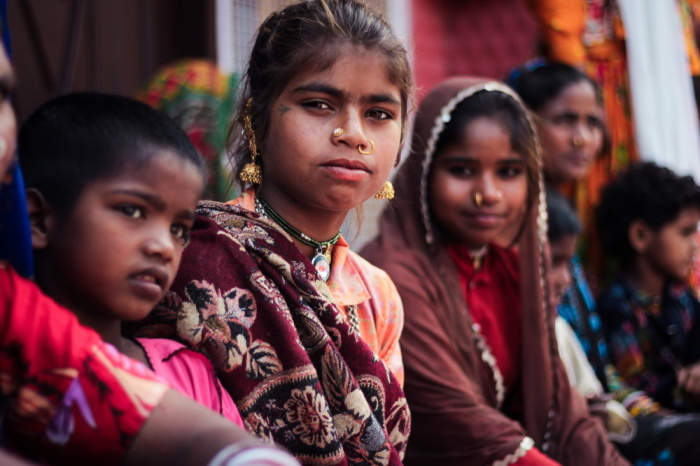India to have 6.8 million fewer female births by 2030 due to abortion: study

India will have approximately 6.8 million missing female births between 2017 and 2030 because of sex-selective abortions, according to a recently published study.
Fengqing Chao at King Abdullah University of Science and Technology in Thuwal, Saudi Arabia, and her colleagues had their paper published by PLOS ONE on Wednesday, titled “Probabilistic projection of the sex ratio at birth and missing female births by State and Union Territory in India.”
According to the paper, the sex birth ratio (SBR) of India has been imbalanced since the 1970s and is projected to result in 6.8 million fewer female births by 2030.
The researchers attributed this to a combination of “the intensity of son preference” in Indian culture and “fertility squeeze,” or a pressure to have a smaller family household.
“The masculinized SBR for India is a direct result of the practice of sex-selective abortions at the national level,” explained the researchers, noting that different regions of the country vary on when this male birth preference began.
“Some states, such as Punjab, have experienced an early and rapid rise in birth masculinity since the 1980s, whereas in North Indian states, the masculinized SBR started to increase later.”
The researchers looked at the SBR estimates by states and union territories in India from 1990 to 2016, as well as data from the India Sample Registration System on total fertility rates and India’s Demographic and Health Surveys.
“We project that out of the 21 Indian States and UTs with SRS data, 16 will have imbalanced SBR between 2017 and 2030,” they continued.
“Among these 16 States/UTs, the largest contribution to the female births deficit is projected to be from Uttar Pradesh, with a cumulative number of missing female births projected to be 2.0 [1.9; 2.2] million from 2017 to 2030.”
The researchers proposed “better identification, monitoring, and education in the worst affected regions” of India as part of the solution to the issue of missing female births.
“Our study highlights the need to strengthen policies that advocate for gender equity and the introduction of support measures to counteract existing gender biases that adequately target each regional context,” they concluded.
“Future work may include additional sources of heterogeneity, such as education, religion, and ethnicity, for projecting the SBR in India and extending the SRB predictions for longer-term projections.”
Jonathan Abbamonte, research analyst at the Population Research Institute, wrote in an op-ed piece published by The Christian Post last year that India is not the only nation facing a disproportionately high number of male births due to sex-selective abortion.
Abbamonte also named China, South Korea, Taiwan, Vietnam, nations in the Balkan Peninsula of Europe as problem areas where “millions of girls have been lost” as a result.
“In India alone, I have found that approximately 15.8 million girls have been eliminated through sex-selective abortion and other forms of prenatal daughter elimination since 1990,” he wrote in 2019.
“To put that in perspective, that is roughly the equivalent of the population of Portugal and Finland combined.”
In 2014, former President Jimmy Carter told David Letterman in an interview that he considered sex-selective abortion the "worst human rights abuse on earth."
He added, "160 million girls are now missing from the face of the earth because they were murdered at birth by their parents or either selectively aborted when their parents find out that the fetus is a girl."
"Well, it's the worst human rights abuse on earth and it's basically unaddressed … So that many people are missing and they're all girls who are missing."
In the United States, several states have considered and even passed bans on sex-selective abortion, only to face legal battles over their constitutionality by pro-choice groups.
Earlier this month, a three-judge panel of the U.S. Court of Appeals for the Eighth Circuit issued a ruling allowing Arkansas to enforce a law passed in 2017 banning sex-selective abortions.
Arkansas Attorney General Leslie Rutledge celebrated the decision, saying in a statement that “Arkansas has taken a strong stance to protect the unborn from inhumane treatment.”
“As Arkansas’ chief legal officer, I have always advocated for the lives of unborn children and will continue to defend our state’s legal right to protect the unborn,” stated Rutledge.
The Guttmacher Institute, a research organization with historic ties to Planned Parenthood, has argued that banning sex-selective abortions would not resolve the issues they create.
“Evidence from the global context indicates that sex-selective abortion bans do not work to prevent sex selection, because these bans do nothing to challenge the phenomenon of son preference or its underlying causes and they are difficult to enforce,” argued the Institute in a post from January.
“Also, sex-selective abortion is only one of several medical methods of choosing the sex of a fetus; others, such as sperm sorting and preimplantation genetic diagnostics, remain legal under state bans on sex-selective abortion.”





























